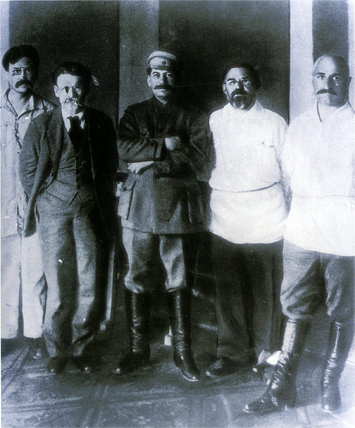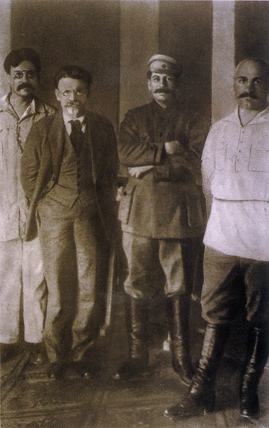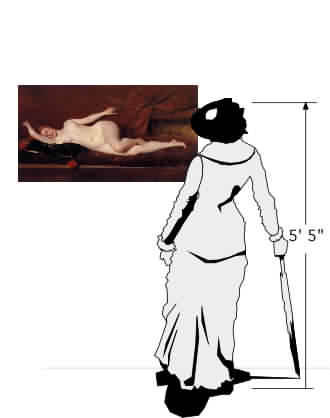
Thursday, December 25, 2014
Sunday, December 21, 2014
losing perspective on Futurama
From the Futurama episode A Taste of Freedom (season 5 episode4) :
Did the Decapodians have a secret anti-perspective weapon or maybe a shrink ray is involved?
In this cross-section, the DOOP's (Democratic Order of Planets) Nimbus appears to have 14 levels.
Here, the same section of the Nimbus as seen just before it crashes to Earth with cloud of smoke after having apparently shrunk to the size of a Central Park tree (well, the size of the canopy of a Central Park tree). All the while, buildings with fewer than 14 stories loom in the background.
Saturday, November 22, 2014
Book Notes : Hitler's Willing Excutioneers by Daniel Jonah Goldhagen
endnote book note
Mosse, in "From 'Schutzjuden' to "deutsche Staatsburger Jüdeischen Glaubens,'" Writes that during the 1880s and 1890s, "there can be little doubt that without [the state's] neutrality and [its] maintenance of law and order, where necessary by force, a wave of pogroms would have swept Germany with incalculable results"' (p90). For a vivid account of a man bursting to assault Jews physicall, but who was restrained by the limits imposed by the state, see Erich Goldhagen, "The Mad Count : A Forgotten Portent of the Holocaust," Midstream 22, no 2 (Feb 1976). Goldhagen writes "Mere words, however, did not satisfy the Count – he thirsted for action. But the pleasure of striking at Jews physicaly was denied to him by the Imperial Government which, while condoning barking against Jews, would not tolerate the beating of them. Count Pueckler, therefore, chose to vent his passions through make-believe gestures. At the head of a troop of mounted peasants, whom he had especially arrayed for the occasions, and to the fanfare of trumpets, he would lead cavalry charges against imaginary Jews, striking them down and trampling them under foot. It was a spectacle affording a psychic equivalent for murder. It was also a remarkable prefigurement of the FinalSolution" p61-62
Sometimes we presume people are rational beings and think there must be some logic or reason behind things but sometimes people are just nuts.
Sunday, November 9, 2014
Chuck Close at work part 2
(see also the post Chuck Close at work part 1 that showed the process of his post-photorealistic, prismatic grid work)
 | ||
|
 |
| Chuck Close painting Mark 1978-79 (108 x 84 inches or 9 x 7 feet) from Chuck Close Work page 86 |
Notice the 5 reference photos : magenta color separation, cyan color separation, then magenta+cyan color separation so he can check his progress, yellow color separations and magenta+cyan+yellow (the full color photo).
Chuck Close's approach to photorealistic painting is not what I expected. To achieve a slick photorealistic you pretty much have to approach it from a strict mechanical process but this wasn't what I expected. But it seems like a sensible approach : simplification and the use of technology.
He appears to begin, from top to bottom dividing the image into sections. A section is then painted from the magenta separation and once that is done that section is painted from the cyan separation with the magenta+cyan proof as an added reference. Then the section is painted guided by yellow separation. Only once the section is completed does he move on to another section
He appears to begin, from top to bottom dividing the image into sections. A section is then painted from the magenta separation and once that is done that section is painted from the cyan separation with the magenta+cyan proof as an added reference. Then the section is painted guided by yellow separation. Only once the section is completed does he move on to another section
Personally, I prefer his later "prismatic grid" works. Once you've seen a couple giant portraits they lose their uniqueness. They become enlarged photos. Photos enlarged by a very time consuming mechanical process like Chuck Close is an Epson printer. That is the point some might say but …
Pictures from the book Chuck Close Work by Christopher Finch (2010).
Saturday, November 1, 2014
Preserve history! No, not that history.
Clip from Secrets of Althorp - The Spencers (2013) :
Narrator : What you see now is an illusion designed to look like grey brick. The exterior is made up of 106,000 thin clay tiles, called mathematical tiles. But centuries of wet English weather wreaked havoc with this outer shell"We must preserve history! But no, not that history." I suspect it is less about an interest in history and more about a dislike of change or a need for someone to boss people around.
…
Jan Bialek (Althorp Building Manager) : Originally, the mathematical tiles were fixed on a quite think lime mortar bed. And then iron nails would be fixed through the holes that are in there and the nails went through the lime mortar and into the red brick. The problem with the nails is that they are iron nails and they rust. And there's no secure fixing to the tiles. So the tiles are gradually coming loose and moving away
Narrator : The Earl embarked on a massive renovation project . A new lead roof and secure fixings for every tile on the walls.
Jan Bialek (Althorp Building Manager) : one or two people have asked "well, why didn't you restore it back to its original red brick?" Physically, it couldn't be done because the red brick was damaged behind.
Narrator : And there was another problem. Althorp's historical importance means that the house is protected by England's strict national heritage rules and regulations. The Earl would not have been allowed to strip the unique façade away from the building. …
(to whoever might be interested , the clip continues and explains how they fixed the mathematical tiles in place)
Wednesday, October 22, 2014
Out of context fun : Duck breasts
"But you know what? So are my duck breasts."
– Courtney Lapresi on Masterchef Season 5, Episode 19, September 15, 2014
Tuesday, October 14, 2014
Olve Oyl and all her curves
Wednesday, October 8, 2014
Mr. Jordan's Pants
Below is an excerpt from an old comment thread from Blair News which contains is a fine example of impenetrableness. Despite being repeatedly fact checked and counter arguments put forward Mr Jordan seems to emotionally know that he is right in some broad sense despite his problems with those little facts from the real world getting in the way.
Note how he starts by saying that the US Government is barred from collecting trace data and once that is pointed out as simply untrue he soon declares that they can't use computers while collecting trace data (the trace data he had earlier claimed was forbidden). He never acknowledged the link to either the ATF's state by state trace data or the ATF's computerized trace database (since he thinks the ATF can't use computers then he must imagine the servers are run by squirrels fulfilling http packet requests).
Is he really impenetrable or is he just throwing things at the wall in the hope that something will stick?
Note how he starts by saying that the US Government is barred from collecting trace data and once that is pointed out as simply untrue he soon declares that they can't use computers while collecting trace data (the trace data he had earlier claimed was forbidden). He never acknowledged the link to either the ATF's state by state trace data or the ATF's computerized trace database (since he thinks the ATF can't use computers then he must imagine the servers are run by squirrels fulfilling http packet requests).
Is he really impenetrable or is he just throwing things at the wall in the hope that something will stick?
Mr Jordan's beclowning is below the fold.
Saturday, October 4, 2014
movie notes : Wagner & Me
Wagner and Me (2010) is a little movie about Stephen Fry's mixed feelings about the music of Richard Wagner and his distaste for things associated with the music (including the composer). Fry is a professional raconteur so despite the movie at times being centered more on Fry and what he might be thinking at that particular moment than Wagnerian history (to be fair, the title is Wagner & Me as opposed to All About Wagner) it is interesting and entertaining throughout.
Stephen Fry says :
Wagner's Russian adventure was a triumph. He was even sounded out about taking over as artistic director of the Mariinsky. Had he accepted there might never have been a Bayreuth Festival House [The theater designed to Wagner's vision of his ideal theater]. He might never have completed the Ring Cycle.His story would have had a different and probably less controversial ending.
Hmmm, if his music had become more influential in Russia than Germany… I guess Russian Czars and Russian Communists must have ruled in a boring and completely uncontroversial way. Interesting isn't it that some mass murdering political leaders are controversial and some aren't. Note that the controversy is not due to Richard Wagner's antisemitism which was known before his trip to Russia but because several decades after Wagner's death (Feb 13, 1883) someone bad liked his music.
I confess that despite the movie's attempt at explaining why some people balk at Wagner because Hitler (born 6 years after Wagner's death) liked his music and the Nazi's played it, I do not understand it. I think I'll watch the movie again later to try to determine if it is a lack of understanding on my part or if I don't understand because it isn't rational.
I've heard the dislike of Wagner and of "his relationship with the Nazis" before and for a while I was under the impression that he was, if not a Nazi, then a Nazi sympathizer which must have meant that he lived to be well over 100. What is really meant is the Nazi's relationship to Wagner not Wagner's
relationship with the Nazis as he was long, long dead. (I can't help but wonder if some people confuse Richard Wagner with another German composer, Richard Strauss, who was alive during the Nazi regime and did deal with the Nazis.)
There is a transgenerational corruption of blood mentioned in the movie, but with a twist. Normally the corruption of blood stains the descendants but Fry has the stain run from descendants' spouses to taint the ancestor and his musical compositions. The movie informs that Wagner's son-in-law Houston Stewart Chamberlain was a racist and early supporter of Hitler and his daughter-in-law Winifred is said "to revere Hitler." The beliefs of the spouse of Wagner's third child is left unmentioned.
Other than Wagner, would Fry accept someone else claiming music or a bloodline or a family is tainted by the words and actions of ancestors or descendants?
Hypothetically, if Johann Sebastian Bach's great-great-great-great granddaughter is a inveterate shoplifter will some people chose not to listen to a Bach piece or perhaps with the distance of time they'll simply refuse to listen to it in stereo.
At one interesting point Fry is discussing Wagner with a musician who survived the Auschwitz as to whether his music is tainted and she starts asking him questions : "What happens to you when you sit there for five hours?" "Why do you have to listen to Wagner in Bayreuth?"
 |
| Oversized bust of Richard Wagner by Arno Breker at Bayreuth Festspielhaus (note the monumental scale) |
Stephen Fry says :
"even this memorial bust was created by Hitler's favorite sculptor"
Considering that the bust was done by Arno Breker in 1939 (Breker was born 27 years after Wagner's death and the work done 56 years after) is it really surprising that it was done by a Nazi approved artist at a time when so-called degenerate art was being discouraged (as in censored).
I'm not sure what to call this. Instead of sins of the father perhaps call it Sins of the Muse. The implication is that Hitler liked a sculptor and decades after the composer's death that sculptor used Wagner as a subject and therefore through no action by Wagner his music is tainted.
Additionally, I'll note that Stephen Fry wore pants throughout the entire movie! Just like Hitler!
Sunday, September 28, 2014
Sunday, September 14, 2014
movie notes : mirror movies
Ever notice how sometimes vaguely similar movies are released within a short time of one another? I suppose the idea is to piggyback on the publicity of the other movie.
Some examples (not an exhaustive list) :
Abyss (1989) vs Leviathan (1989) vs Deepstar Six (1989)
1492 (1992) vs Christopher Columbus : The Discovery (1992)
Armageddon (1999) vs Deep Impact (1999)
Mission to Mars (2000) vs The Red Planet (2000)
White House Down (2013) vs Olympus Has Fallen (2013)
for your consideration :
Prometheus (2012) vs Small Apartments (2012)
Some examples (not an exhaustive list) :
Abyss (1989) vs Leviathan (1989) vs Deepstar Six (1989)
1492 (1992) vs Christopher Columbus : The Discovery (1992)
Volcano (1997) vs Dante's Peak (1997)
Antz (1998) vs A Bug's Life (1998)Armageddon (1999) vs Deep Impact (1999)
Mission to Mars (2000) vs The Red Planet (2000)
White House Down (2013) vs Olympus Has Fallen (2013)
for your consideration :
Prometheus (2012) vs Small Apartments (2012)
Thursday, August 7, 2014
Hecho en EUA
recently seen on a popsicle (freezer pops or whatever the correct terminology is) :
"Hecho en EUA" is Spanish for "Made in the USA." (EUA = Estados Unidos de America.) Nowhere on the packaging does it say made in the USA or give the address in English.
 | |
|
 | |
|
"Hecho en EUA" is Spanish for "Made in the USA." (EUA = Estados Unidos de America.) Nowhere on the packaging does it say made in the USA or give the address in English.
Sunday, July 13, 2014
how sponge-like can a sponge be?
Using Fluorescent Dye To Show How Sponges Filter Feed (video at link)
at 1:40 :
at 1:40 :
"These ghostly exhalations are proof that the sponge is actively pumping. With no mouth it sucks water directly through its spongelike body walls which are shot through with millions of narrow canals and tiny chambers"Were some viewers were expecting it to giraffe-like? I would have assumed that a sponge would be about as spongelike as anything is possible to be.
Sunday, June 8, 2014
A defense of the United Nations

(This is a somewhat long, somewhat ranty, counterpoint to Bingbing's post mostly written around 2010.)
The UN can't change. If the UN didn't exist then someone would invent it. Or they would have continued the League of Nations. Or invented a new version with a name like "The Legion of Places Where People Live" or "The Guild of Unicorns and Good Intentions." As a meeting place (and to a much lesser degree a debate hall) the UN has value. This is not to say the UN should be respected or even listened to.
The UN, like the League of Nations before it, is inherently broken.
The United Nations was founded upon corruption and the debasement of principles. In order to get the USSR to join, the Soviets were given 3 votes in the UN General Assembly : one for the USSR and one each for the Ukraine & Belarus (at the time, both were component parts of the USSR). The USSR had asked for 15 votes and after carefully pouring gasoline on their principles and burning them the world's diplomats stepped over the ashes and negotiated the Soviets down to 3 votes. It was a victory for the diplomacy of low expectations but a defeat for numeracy.
n.b. the USSR had been kicked out of the League of Nations December 14, 1939 because of its invasion of Finland – the invasion started Nov 30, 1939; bureaucracy moves more slowly than tanks. But the vision of the UN as a meeting place of all nations would be a joke if it lacked one of the largest countries in the world so despite its previous behavior the USSR was invited to join. The penalty for invading Finland? Roughly, a 5 year, 11 month timeout and they could keep the Finnish territory seized during the invasion. However, consider that the League of Nations itself suspended its operations on the same day and did not restart until after WW2 and then only to transfer authority to the UN. The Russians must have been teary eyed when they were informed they wouldn't be allowed to attend any League meetings and, by the way, that the League won't be having any meetings for about 5 years and 11 months.
One great thing about the UN is that a UN member who is a disinterested third party can take a fresh look at an issue and make a decision in dispassionate way.
Of course, this also allows the uninvolved third party to ask "What's in it for me?" Like China did in 1997 when, after over 30 years of war, both sides of the Guatemalan Civil War agreed to make peace but the Chinese vetoed the UN resolution to end the civil war. Why? Because Guatemala received foreign aid from Taiwan and in return Guatemala supported the idea of recognizing Taiwan in the UN. (Wait, Taiwan was bribing countries in the UN to gain support? Yup.)
Taiwan and mainland China have been distinct entities since 1949. Until 1971, the UN recognized Taiwan as China but pretended mainland China didn't exist. In 1971 the UN General Assembly voted to replace the Republic of China with communist China. (Now isn't that a potentially seismic precedent) Obviously, the UN can't have two Chinas. It is almost impossible to imagine what it would be like if the UN had two Germanies or two Koreas or two Congos. If they didn't somehow differentiate between the names of the two then there would be mass confusion on the floor of the UN. It would be Abbott and Costello level chaos.
The UN knows that people can't just declare themselves to be a country. Actually, it turns out that the Republic of Macedonia can declare itself independent from Yugoslavia and quickly be recognized by the UN. I'm hoping the Free and Independent Republic of Milquetoastistan's admission to the UN will be approved as quickly.
How unprincipled is the UN? Yasser Arafat's PLO (Palestinian Liberation Organization) was given observer status Nov 22, 1974 only days after a PLO group had committed murder and the PLO continued to murder people.
One country, one vote (except for the USSR's 3 votes). Not exactly democracy is it? Tuvalu with 10,000 people has a UN vote equal to India's 1.1 billion people. Most of China's 1.3 billion people aren't represented by the controlling Communist Party of China and therefore they aren't represented in the UN either. The 23 million Taiwanese aren't represented either. The Western Sahara and the Gaza Strip are also not members of the UN.
How representative is the UN?
- Out of 192 UN member nations 101 members have smaller populations than New York City.
- The 34 smallest UN member nations' populations combined are still smaller than New York City's population.
- Of 192 members, the 160 smallest UN members combined have a population nearly equal to China — the largest member.
- Six UN members states together have a majority (50.4%) of the world's population (China, India, US, Indonesia, Brazil & Pakistan)
- The five economically largest members by GDP make up 52% of the world's economy (US, Japan, China, Germany, & France). The top 10 countries makes 67%. The top 20 countries makes 81.5%.
- With a world population of 6.8 billion, there is an average of one UN representative for every 35,416,666 people. Not that a UN representative cares what regular people think. That's not their job.
The obvious question is why are they voting on anything? Each country can (and does) make treaties or form organizations with any other. For example, the Universal Postal Union was founded in 1874 with 22 members. Why concentrate power with the UN? To lend credibility to crap and to leech credibility from the good.
An open ended organization of all nations will always have various people/governments/agencies vying for power, control and anyway to manipulate the organization to their interests. If the UN were considered competent and could actually do something about the Sudan then imagine the mad rush there would be to twist that power into a mechanism of control. Everyone would try to invade Belgium at once.
By putting Cuba, Libya and China on a Human Rights Council the UN is willing to prove its level of corruption despite the UN's usual problems with conventional transparency.
I'd prefer the UN exist in its natural, incompetent and self-neutering state as meeting place, a pointless debate factory and for it to be recognized by everyone for the cesspool that it is. Basically the same as it is now but with less wasted money, less child rape, less rape in general and fewer UN peacekeepers trying to score with goats.
 |
| The UN's motto |
Wednesday, June 4, 2014
An Outburst of Beethoven
I think this is marvelous.
notice at 3:50 the blue shirted French horn player who, unlike his fellow French horners, is not playing his instrument. It is very possible he had a reason but it seems like instruments are played in unison so I think he might have gotten caught on camera loafing.
 |
| one of these things is not like the others |
notice at 5:21 I obsessively watched this looking for the cameramen once I realized that there were multiple views but I hadn't noticed the cameramen. There are a couple cameramen. One in dark clothing in the upper left and another in a white shirt going across the front of the crowd. I think a third one is in a white shirt next to the building Editing away the cameramen makes the people's reactions seem more authentic despite the reality that there were guys with big camera pointing them at people's faces.
I'm not sure if this was edited in a linear way. the white shirt cameraman running in front of the crowd at 5:21 can also be seen running in front of the same crowd at 5:16. Did he do it twice or did they use the footage of the same event twice?
Also notice the little girl at 1:01 who sits next to a boy and she seems to be trying to mimic his way of sitting. And there is the little conductor at 3:35.
Update June, 6, 2014
Hmmmm, at the woman with dangling earrings is watching and then at the next scene at 2:14 she teleports so she is talking to a guy with a newspaper.
Likewise, at 2:30 the sunglasses guy is seen in the crowd behind the bassist and at 2:33 (the next scene) he teleports to the cafe area.
Monday, May 12, 2014
satyr tripod
ithyphallic : the prefix ithy- means straight or erect
Perhaps the designer wanted to give people who approach the basin plenty of hooks for them to hang their purses or whatever while they wash their hands.
The elongation of the satyr's legs is a distotrtion that seems to work probably because they aren't human.
 |
| Temptation of Saint Anthony by Salvador Dali (1946) |
Saturday, April 5, 2014
Popeye's Flying Boat
Popeye's flying boat (more flying boat than seaplane) from the Fleisher Studios color 2 reeler "Popeye The Sailor Meets Ali Baba's Forty Thieves" (1937)
 |
| Popeye's Flying Boat in the water (with Olive Oyl on the pier and Wimpy at the radio) |
 |
| Popeye's Flying Boat lifting off from the water |
 |
| Popeye's Flying Boat in flight (no seat belts) |
Sunday, March 16, 2014
hummus vs humus
Before ordering or eating hummus one should always be sure that it is hummus and not humus. Spelling matters.
The first time I came across hummus on a menu I wasn't familiar with it although I was familiar with the term humus and I thought they were the same thing (at the time I also wasn't aware that they are pronounced differently).
hummus (noun)
a paste of pureed chickpeas usually mixed with sesame oil or sesame paste and eaten as a dip or sandwich spread
humus (noun)
Nonliving, finely divided organic matter in soil, derived from microbial decomposition of plant and animal substances. Ranging in colour from brown to black, it consists primarily of carbon but also contains nitrogen and smaller amounts of phosphorus and sulfur. As it decomposes, its components are changed into forms usable by plants. Humus is classified according to how well it is incorporated into the mineral soil, the types of organisms involved in its decomposition, and the vegetation from which it is derived. It is valued by farmers and gardeners because it provides nutrients essential for plant growth, increases the soil's water absorption, and improves soil workability.
Monday, March 10, 2014
explosion
 |
| Explosion of the Spanish flagship during the Battle of Gibraltar, 25 April 1607 by Cornelis Claesz van Wieringen, c1621 |
The explosion isn't in Industrial Light and Magic style but it is interesting that the flames are in Spanish red and yellow. Note the sails of each ship are blown to the left while the Spanish ship's sails are all blown away from the center of the explosion
 |
| detail #1 (from near the top of the painting) a brush for cleaning a cannon bore and 2.5 people |
Wednesday, March 5, 2014
Word of the Day : pandiculate
 | |
|
pandiculate : To fully stretch the torso and upper limbs, typically accompanied by yawning.
Thursday, February 27, 2014
recto
Kneeling Nun, verso, by Martin van Meytens, c1731
a notable detail of the painting revealed below
a notable detail of the painting revealed below
Tuesday, February 18, 2014
Chuck Close at work
Chuck Close at work. From Graphis Magazine #313 (no date printed but I think it is from around 1998) It is an interesting insight to how he works. It looks like a two inch square grid at a 45º angle, he starts at the top blocking color in several rows, and then each grid tile is given a "dot."
At first it might appear to be that he fills in a band of the grid from the top down but compared to the finished piece and there were changes made in the corners. Aside from the background there is a little use of line that extends outside of an individual grid box. For example, part of his glasses and part of the shirt collar.
At first it might appear to be that he fills in a band of the grid from the top down but compared to the finished piece and there were changes made in the corners. Aside from the background there is a little use of line that extends outside of an individual grid box. For example, part of his glasses and part of the shirt collar.
The lift he uses to raise himself to paint higher portions of the painting appears to be a Big Joe Lift In-Between Handling Manual Stacker IBH1018 or a very similar model.
Another photo in the article shows Close working in a different workspace where the painting can be lowered down into a hole in the floor. When he moved studios he retired his Big Joe lift and started moving the painting.
Below is the finished painting.
Saturday, February 15, 2014
Alphonse Mucha's wife and the painting Woman in the Wilderness
 |
| detail of Alphonse Mucha's painting Woman in the Wilderness, 1923 juxtaposed with the photograph of his wife Maruška posing for the painting. (click to embiggen) |
seen here
 |
| Woman in the Wilderness, 1923, oil on canvas, 201.5 x 299.5 cm (79.3" x 117.9") (click to embiggen) |
 |
| an attempt to show the scale of the painting |
Labels:
animatedGIF,
art,
photo,
photoshop,
women
Monday, February 3, 2014
civility : pissing on a grave
Eduardo Labarca appears to urinate on the grave of Jose Luis Borges on the cover of his book The Enigma of the Modules
"Peeing on that tomb was a legitimate artistic act," … "I am not just a person who goes around peeing on tombs, but a writer with a serious oeuvre," he said today.
By legitimate he means fake :
The photo has provoked outrage in Borges's native Argentina, even though Labarca admits the stream of water descending on the great man's grave actually came from a bottle of water hidden in his right hand.
The reason for it all :
"Anyone who is offended by this is very short-sighted," he said. "Borges was a giant as a writer but I feel complete contempt for him as a citizen. As an old man, almost blind, he came to meet the dictator Pinochet in the days when he was busy killing."
p.s. if you find the design of Borges' gravestone as interesting as I do there then someone has already done the research on it.
Tuesday, January 28, 2014
How Orwellian : Antiwar songs and prowar songs
 |
| Josef Stalin practices his Nazi salute (eventually, Seeger realized Stalin wasn't the bees knees, but that wasn't until 2007.) |
from Pete Seeger's New York Times Obituary :
When he returned to New York later in 1940, Mr. Seeger made his first albums. He, Millard Lampell and Mr. Hays founded the Almanac Singers, who performed union songs and, until Germany invaded the Soviet Union, antiwar songs, following the Communist Party line. Mr. Guthrie soon joined the group.
During World War II the Almanac Singers’s repertory turned to patriotic, antifascist songs, bringing them a broad audience, including a prime-time national radio spot.
"Antiwar songs" and "antifascist songs"? Why didn't the writer use the available symmetry in terminology : Seeger played antiwar songs and prowar songs.
Those weren't really anti-war songs. They were less against war in general and more against any opposition to the revanchist wars of the USSR and their Nazi partners in crime. Opposing any effort to prevent Poland from being invaded and carved up is somehow "antiwar" while the NY Times describes his songs after the invasion of the USSR as "patriotic, antifascist songs" instead of prowar songs.
Seeger was essentially saying "Leave poor Stalin & Hitler alone! Poland, Latvia, Lithuania, Estonia, Poland, and Finland are faraway, foreign, irrelevant places" until his pet USSR was attacked that is.
To paraphrase Grouch Marx : These are my principles, if you don't like them … well, the party might tell me if I have others.
Tuesday, January 21, 2014
about the Stalin Society
 |
| before (Grigorii Petrovsky, bearded, standing next to Josef Stalin) |
 |
| after (Grigorii Petrovsky no longer standing next to Josef Stalin) |
The Stalin Society, an actual existing thing, is a group who see Joseph Stalin as a great Marxist-Leninist and wish to preserve what they believe is his positive legacy. What happens at the meetings of the Stalin Society?
I assume they take turns dressing up in their Stalin costumes with greasepaint mustaches and chasing each other around the room with plastic hammers playing Duck, Duck, Kulak. At dinner, anyone not in their Stalin costume or if their costume is deemed "inauthentic" (how it is determined one way or the other is opaque and not open to review) then those members aren't allowed to eat. On Trotsky Tuesdays, those who are allowed to eat must do so with an icepick. Members occasionally mysteriously disappear leading to all photos, documents and records of the society needing to be modified to reflect the new reality. There is often talk about the Stalin Society invading Finland out of *cough-cough* "self-defense" and then claiming that they were forced to do it due to a lack of support from the United States. On sunny days, they go out to the park to have a friendly game of volleyball and generally frolic and giggle in the grass with the Hitler Society.
Monday, January 20, 2014
people shouldn't get their understanding of the world from comedians
There is a reason why people shouldn't get their understanding of the world from comedians.
Clip from George Carlin : What Am I Doing In New Jersey? (1988)
Appropriately, this bit was after a long list of things he doesn't like.
Transcript :
Interestingly, the 1943 Supreme Court case was specifically about the FCC overreaching and claiming powers not specifically granted by the legislation. The Supreme Court decided 5-2 (with 2 Justices not taking part) that FCC regulations were not limited to just the technical aspects of broadcasting but they could also regulate other aspects including content. The 5 Justices in the majority were all appointed by FDR. One of the dissents was appointed by FDR and the other dissent was the sole Justice on the Court appointed by Herbert Hoover. The Rev. Donald Wildmon mentioned by Carlin was born in 1938 and was 5 years old at the time (and he may not have been a reverend yet). It is possible he may have been a precocious letter writing at 5 year old but I have my doubts.
In a 1953 case the Supreme Court described the bounds of FCC regulation as "the vaguish, penumbral bounds expressed by the standard of 'public interest.' "
Again, from the majority opinion in 1943 :
George Carlin was probably referring something a little more contemporaneous. The 1978 case before the Supreme Court, the FCC vs Pacifica Foundation had its origins in a broadcast of George Carlin's "Seven Dirty Words" skit in 1973. Contrary to what Carlin said, Rev. Donald Wildmon did not write the letter of complaint that prompted the case. It turns out a guy named John Douglas complained to the FCC. He wasn't in Mississippi, he was driving back to Long Island, New York from New Haven, Connecticut and complained about WBAI-FM out of New York City. John Douglas belonged to Morality in Media while Donald Wildmon founded the National Federation for Decency.
I suppose "a minister in Mississippi" carries a different set of stereotypes than "a CBS executive in New York" or depending on what part of Long Island he lived and where he worked "a CBS executive in New York City"
"if you have any left when you finish burning all the books" The complaint by John Douglas was specifically complaining that the bit was inappropriate to be broadcast on a Tuesday afternoon.
Considering the case was decided in 1978 it might be a bit careless to blame the FCC "answerable only to" Jimmy Carter on "these Reagan people." Besides, I'm not sure exactly how much influence a sitting president has on the FCC ("answerable only to the president") considering they are appointed to staggered 5 year terms and a maximum of 3 members can be of the same party. But I wondered who was on the FCC Commission at the time :
(the FCC site listing FCC commissioners shows the name, party affiliation, state and their term of service. Margita E. White's state is listed as Sweden. I assume she was born there and not that she represented Sweden.)
Carlin also refers to "these Reagan people" as those who"still want to tell you what rock lyrics you can listen to" but the PMRC, to name the most prominent group, was a bipartisan hysteria. (I thought it was hysterical hysteria because I was listening to some of the music highlighted and hadn't realized its perversity until Tipper Gore and the PMRC pointed it out. Some of the music I sought out just so I could hear it for myself.) The "they still want to tell you what magazines you can read" I assume refers to Attorney General Meese and the Meese Report which I understand was focused less on what people read and more on the graphical elements.
While I like people who defend freedom of speech, it seems dangerous to treat it like a team sport and only boo the other team while staying silent about the censorious tendencies of your own team. The concern is that when your team does overstep the habit of staying quiet will continue.
Keep in mind, these Reagan people are the ones that were going to get the government off our back. Remember that? That was the rhetoric of the 1980 campaign : "We'll get government off your backs and out of your lives". Yeah but they still want to tell you what magazines you can read and they still want to tell you what rock lyrics you can listen to and they still want to force your kids to pray in school and they still want to tell you what you can say on the radio. The FCC, the Federal Communications Commission, decided all by itself that radio and television are the only two parts of American life not protected by the free speech provisions of First Amendment to the Constitution. I'd like to repeat that because it sounds vaguely important.
The FCC, an appointed body, not elected, answerable only to the president decided on its own that radio and television were the only two parts of American life not protected by the free speech provisions of First Amendment to the Constitution. Why did they decide that? Because they got a letter from a minister in Mississippi. A Reverend Donald Wildmon heard something on the radio that he didn't like. Well Reverend, did anyone ever tell you there are two knobs on the radio? … Of course, I'm sure the Reverend isn't that comfortable with anything that has two knobs on it. But hey Reverend, there are 2 knobs on the radio. One of them turns the radio off and the other one changes the station. Imagine that Reverend, you can actually change the station. It's called freedom of choice and it's one of the principals this country was founded upon. Look it up in the library if you have any left when you finish burning all the books.
The FCC (Federal Communications Commission) began 1934 and it's predecessor organization the Federal Radio Commission was formed in 1926. The Supreme Court had dealt with the FCC as early as 1943.
Interestingly, the 1943 Supreme Court case was specifically about the FCC overreaching and claiming powers not specifically granted by the legislation. The Supreme Court decided 5-2 (with 2 Justices not taking part) that FCC regulations were not limited to just the technical aspects of broadcasting but they could also regulate other aspects including content. The 5 Justices in the majority were all appointed by FDR. One of the dissents was appointed by FDR and the other dissent was the sole Justice on the Court appointed by Herbert Hoover. The Rev. Donald Wildmon mentioned by Carlin was born in 1938 and was 5 years old at the time (and he may not have been a reverend yet). It is possible he may have been a precocious letter writing at 5 year old but I have my doubts.
From the majority opinion :
True enough, the Act does not explicitly say that the Commission shall have power to deal with network practices found inimical to the public interest. But Congress was acting in a field of regulation which was both new and dynamic. 'Congress moved under the spur of a widespread fear that in the absence of governmental control the public interest might be subordinated to monopolistic domination in the broadcasting field.' Federal Communications Comm. v. Pottsville Broadcasting Co., 309 U.S. 134, 137, 60 S.Ct. 437, 439, 84 L.Ed. 656. In the context of the developing problems to which it was directed, the Act gave the Commission not niggardly but expansive powers.
In other words, "screw what the law actually says we'll just pretend it says what we want it to say."
In a 1953 case the Supreme Court described the bounds of FCC regulation as "the vaguish, penumbral bounds expressed by the standard of 'public interest.' "
Again, from the majority opinion in 1943 :
We come, finally, to an appeal to the First Amendment. The Regulations, even if valid in all other respects, must fall because they abridge, say the appellants, their right of free speech. If that be so, it would follow that every person whose application for a license to operate a station is denied by the Commission is thereby denied his constitutional right of free speech. Freedom of utterance is abridged to many who wish to use the limited facilities of radio.So, because radio is a limited medium that not everyone can participate in at once that justifies even more restrictions on those few who are allowed to participate. It wasn't exactly that the FCC "decided all by itself."
George Carlin was probably referring something a little more contemporaneous. The 1978 case before the Supreme Court, the FCC vs Pacifica Foundation had its origins in a broadcast of George Carlin's "Seven Dirty Words" skit in 1973. Contrary to what Carlin said, Rev. Donald Wildmon did not write the letter of complaint that prompted the case. It turns out a guy named John Douglas complained to the FCC. He wasn't in Mississippi, he was driving back to Long Island, New York from New Haven, Connecticut and complained about WBAI-FM out of New York City. John Douglas belonged to Morality in Media while Donald Wildmon founded the National Federation for Decency.
I suppose "a minister in Mississippi" carries a different set of stereotypes than "a CBS executive in New York" or depending on what part of Long Island he lived and where he worked "a CBS executive in New York City"
"if you have any left when you finish burning all the books" The complaint by John Douglas was specifically complaining that the bit was inappropriate to be broadcast on a Tuesday afternoon.
Considering the case was decided in 1978 it might be a bit careless to blame the FCC "answerable only to" Jimmy Carter on "these Reagan people." Besides, I'm not sure exactly how much influence a sitting president has on the FCC ("answerable only to the president") considering they are appointed to staggered 5 year terms and a maximum of 3 members can be of the same party. But I wondered who was on the FCC Commission at the time :
| FCC Commissioners when the broadcast occurred (Tuesday afternoon, Oct 30, 1973. The complaint was sent in November 1973) | ||
| Nicholas Johnson | Democrat | Jul 1 1966 to Dec 5, 1973 |
| H. Rex Lee | Democrat | Oct 28, 1968 to Dec 31, 1973 |
| Charlotte T. Reid | Republican | Oct 8, 1971 to Jul 1, 1976 |
| Richard E. Wiley | Republican | Jan 5, 1972 to Oct 13, 1977 |
| Benjamin L. Hooks | Democrat | Jul 5, 1972 to Jul 25, 1977 |
| FCC Commissioners in 1978 (when the case was heard by the Supreme Court April 18 & 19, 1978 and when it was decided July 3, 1978) | ||
| James H. Quello | Democrat | Apr 30, 1974 to Nov 1, 1997 |
| Abbott M. Washburn | Republican | Jul 10, 1974 to Oct 1, 1982 |
| Joseph R. Fogarty | Democrat | Sept 17, 1976 to Jun 30, 1983 |
| Margita E. White | Republican | Sept 23, 1976 to Feb 28, 1979 |
| Charles D. Ferris | Democrat | Oct 17, 1977 to Apr 10, 1981 |
Carlin also refers to "these Reagan people" as those who"still want to tell you what rock lyrics you can listen to" but the PMRC, to name the most prominent group, was a bipartisan hysteria. (I thought it was hysterical hysteria because I was listening to some of the music highlighted and hadn't realized its perversity until Tipper Gore and the PMRC pointed it out. Some of the music I sought out just so I could hear it for myself.) The "they still want to tell you what magazines you can read" I assume refers to Attorney General Meese and the Meese Report which I understand was focused less on what people read and more on the graphical elements.
While I like people who defend freedom of speech, it seems dangerous to treat it like a team sport and only boo the other team while staying silent about the censorious tendencies of your own team. The concern is that when your team does overstep the habit of staying quiet will continue.
Saturday, January 18, 2014
Harvey Weinstein is PRO-gun he just hasn't realized it yet
Harvey Weinstein is PRO-gun he just hasn't realized it yet (audio)
Harvey Weinstein : [referencing the Warsaw Ghetto Uprising] This has been a project I've searched for ever since my aunt gave me the book when I was a boy. It's an important story to tell.
Howard Stern : …holocaust story
Harvey Weinstein : It's not a holocaust story as much as it's jews with guns. It's my whole philosophy, or anybody, it's the idea that when injustice is that great then you can't just march into the camps. This is the story that's the opposite.
Howard Stern : Do you own a gun?
Harvey Weinstein : No
Howard Stern : You don't have any guns?
Harvey Weinstein : I don't ever wanna have a gun
Howard Stern : Well, why, if that story resonates with you, why not own a gun?
Harvey Weinstein : No, this is, this is when you're marching a half a million people into Auschwitz. Howard Stern : Right
Harvey Weinstein : I mean , whatever, I'd find a gun if that was happening to my people. I don't think we need guns in this country. …
And he'll get a fire extinguisher after the house is nearly burnt down. I don't think he's really given gun control much thought or he'd have realized that if those in the Warsaw Ghetto could have found 50,000+ guns to arm themselves then they probably would have. He needs to ask why they couldn't.
Update
confronted with the fact that he has produced a number of violent films, Harvey responds
"They have a point. You have to look in the mirror, too. I have to choose movies that aren’t violent or as violent as they used to be. I know for me personally, you know, I can’t continue to do that. The change starts here. It has already. For me, I can’t do it. I can’t make one movie and say this is what I want for my kids and then just go out and be a hypocrite."Will his new Warsaw Ghetto Uprising movie eschew violence and have jews try to overcome Nazi genocide through coexist bumperstickers?
Friday, January 17, 2014
Talkin' Thunderbird Blues
The Talkin' Thunderbird Blues by Townes Van Zandt
(Live in Staffordshire, UK, Oct 15, 1990)
Tuesday, January 7, 2014
movie notes : Jerry Seinfeld in the Bee Movie
This would have been a much better movie if it had been about the travails of Jerry Seinfeld, etc making a B-movie while wearing fluffy bee suits rather than what was finally made.
Wednesday, January 1, 2014
Happy Nude Year!
 |
| click to embiggen |
Oil on Canvas
22" x 40" (55.9 x 101.6cm)
 |
| an attempt to show the scale of the painting |
Subscribe to:
Comments (Atom)











